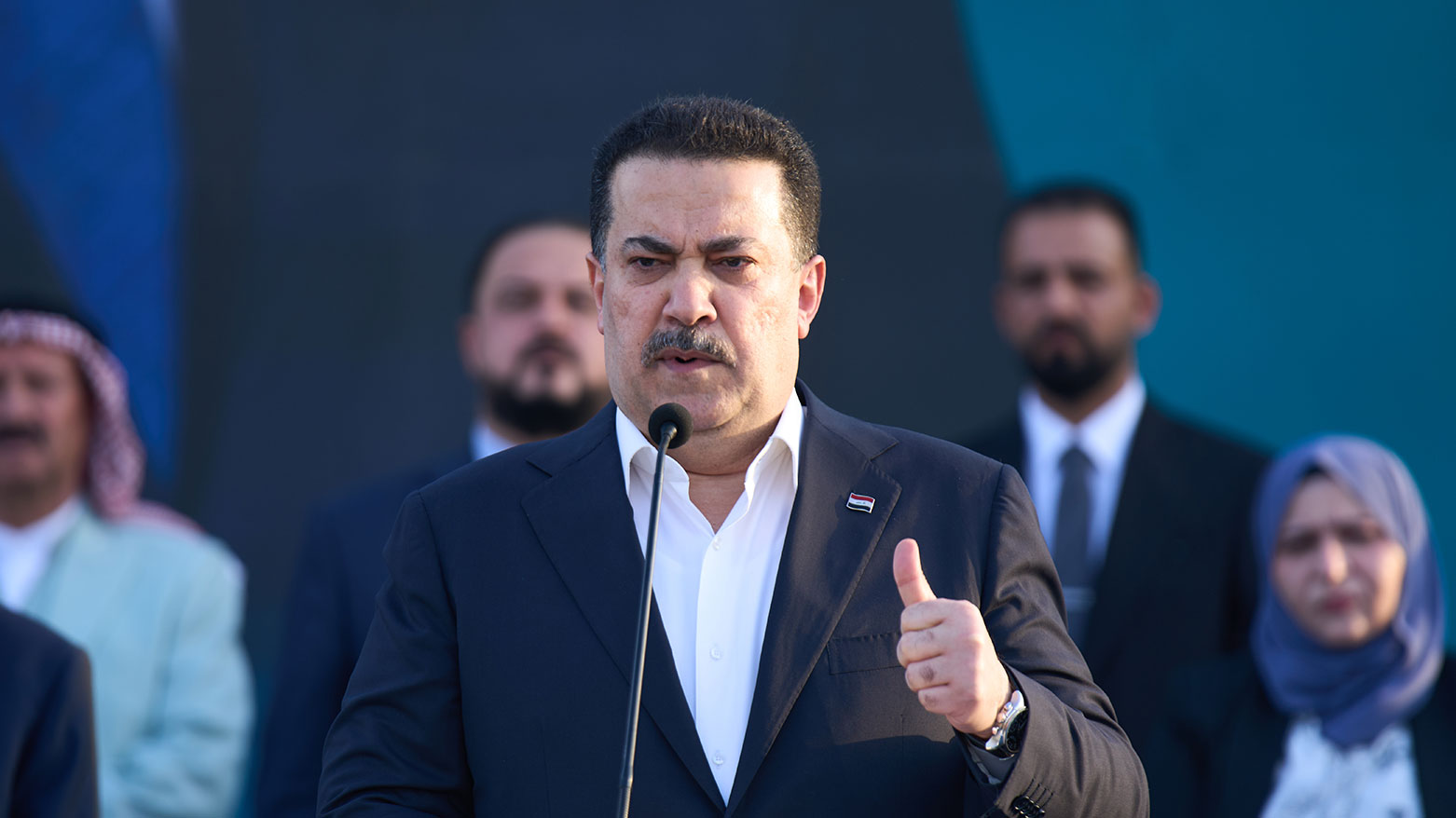Iraqi PM Says Small U.S. Military Contingent to Remain Amid Syria Developments
Speaking at a press conference in Baghdad, al-Sudani said between 250 and 350 U.S. advisers and support personnel will stay temporarily at the Ain al-Asad air base in western Iraq, near the Baghdad airport, and at the al-Harir base in the Kurdistan Region.

ERBIL (Kurdistan24) — Iraqi Prime Minister Mohammed Shia al-Sudani announced on Monday that a limited number of U.S. military advisers will remain in Iraq to coordinate with American forces in neighboring Syria in ongoing efforts to counter the remnants of ISIS.
Speaking at a press conference in Baghdad, al-Sudani said between 250 and 350 U.S. advisers and support personnel will stay temporarily at the Ain al-Asad air base in western Iraq, near the Baghdad airport, and at the al-Harir base in the Kurdistan Region.
The prime minister explained that while last year’s agreement between Baghdad and Washington had called for a complete withdrawal of U.S. forces from Iraq by September 2025, “developments in Syria” — including renewed instability following the fall of former Syrian President Bashar Assad — had prompted both sides to maintain a small advisory unit.
“These personnel will assist in surveillance and coordination with U.S. forces at the al-Tanf base in Syria to ensure that IS does not exploit the security vacuum,” al-Sudani said. He added that other U.S. sites across Iraq are undergoing “gradual reductions” in both personnel and operations.
Al-Sudani stressed that ISIS “no longer poses a significant threat inside Iraq,” but he emphasized the need for vigilantism to prevent a resurgence.
Reaffirming his government’s neutral stance in regional politics, al-Sudani said Iraq aims to balance its relations with both the United States and Iran while avoiding entanglement in external conflicts.
“We put Iraq first, and we do not wish to act as a proxy for anyone,” he said. “Iraq will not be a battlefield for conflicts.”
The prime minister also urged Washington to return to diplomatic engagement with Tehran, calling U.S. President Donald Trump’s “maximum pressure” policy against Iran “counterproductive.”
“Iran is an important and influential country that must be treated with respect and through direct dialogue,” he added.
Tensions between Baghdad and Washington have persisted over the role of Iran-backed armed groups in Iraq. The Popular Mobilization Forces (PMF) was officially brought under state control in 2016 but continues to exercise substantial autonomy.
The Iraqi Parliament is currently reviewing legislation to formalize the PMF’s relationship with the Iraqi military — a move that has drawn objections from the U.S. Al-Sudani refrained from commenting directly on the bill but said his government’s agenda includes “disarmament and national dialogue to remove any justification for carrying weapons.”
“We encourage all factions to either integrate into state institutions or engage in political life,” he said, noting that armed groups that have transformed into political entities have the “constitutional right to participate” in Iraq’s upcoming parliamentary elections, scheduled for next month.
The vote will be a key test for al-Sudani’s leadership and will determine whether he secures a second term as prime minister.